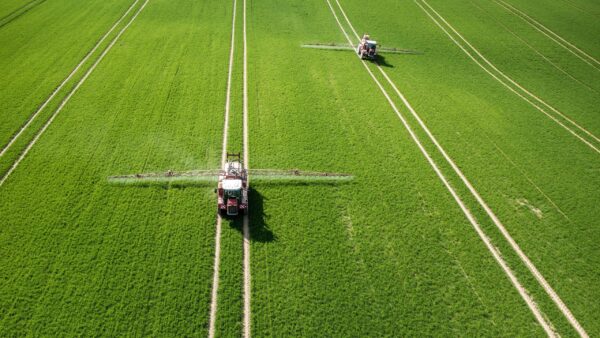
_x000D_
A Hybrid of Technology and Tradition_x000D_
_x000D_

_x000D_
Creating hybrid wheat is no small undertaking. It amounts to completely re-engineering the crop’s mechanism of reproduction, changing it from a self-pollinated crop into one that can be cross-pollinated reliably and efficiently — all this while still delivering the uniformity growers expect from a hybrid crop with consistently higher yields. What’s enabling this step-change is advances in technology that shorten the plant breeding cycle from 10 to 12 years to as few as six._x000D_
_x000D_
Syngenta is a leader in two cereal breeding technologies that helped us usher in hybrid winter barley in Europe and which will be key in the development of hybrid spring wheat for Canada. Both technologies — marker-assisted breeding and double-haploid breeding — will dramatically shorten the crossing and selection stages of the breeding process._x000D_
_x000D_
In the past, seed breeders typically had to wait a full growing season to see if the progeny of a genetic cross carried the traits the breeder wanted. With marker-assisted breeding, though, a seed developer in a laboratory can extract genetic material and look for the exact genes that encode for the desired traits (or ones closely linked to them) to ensure that they are present in the seed. This not only speeds up the selection process, it also adds a large amount of precision and certainty._x000D_
_x000D_
Double-haploid breeding accelerates the selection process in another way. Normal sexual reproduction in plants increases genetic diversity by ensuring that progeny are slightly genetically different from each other. This is central to the process of natural selection, but it’s a complication to seed breeding, where developers want to work with generically pure lines. Double-haploid breeding sidesteps this complexity by avoiding the fusion of sperm and egg altogether. Instead, haploid female megaspore tissue is cultured and undergoes a duplication of its genetic material. The resulting germplasm is naturally fixed and genetically uniform._x000D_
_x000D_
Using these innovative technologies, we’ll be able to identify and select appropriate male and female varieties to use in our hybrid wheat program. But, of course, that’s only half of the breeding process. The other half of the process is where our long legacy in cereal breeding comes into play._x000D_
_x000D_
As the world’s largest cereal breeder, we have access to facilities and expertise around the globe. We can rely on research farms in both the Northern and Southern hemispheres to take advantage of two testing seasons per year. As a result, we can speed up the testing and screening stages without sacrificing any quality assurance steps._x000D_
_x000D_
Right here at home, Canada boasts one of Syngenta’s most extensive cereal breeding programs. During any given year, we’re selecting from 8,000 to 9,000 new crosses, looking for those with yield and agronomic characteristics well suited to each region. So while technology may capture the headlines, years of experience, extensive field trials and tenacity are still necessary to select genetics that meet local needs and expectations._x000D_
_x000D_
If I sound optimistic and even boldly confident, it’s because I am. A breeding renaissance — fuelled by global consumer demand for wheat — should soon give Canadian growers something truly innovative: wheat that is exceptional in its uniformity, vigour and productivity. It’s one more way that Canadian wheat growers will remain the envy of farmers around the world._x000D_
_x000D_
Francis Kirigwi, Wheat Breeder, Syngenta Seeds Canada













